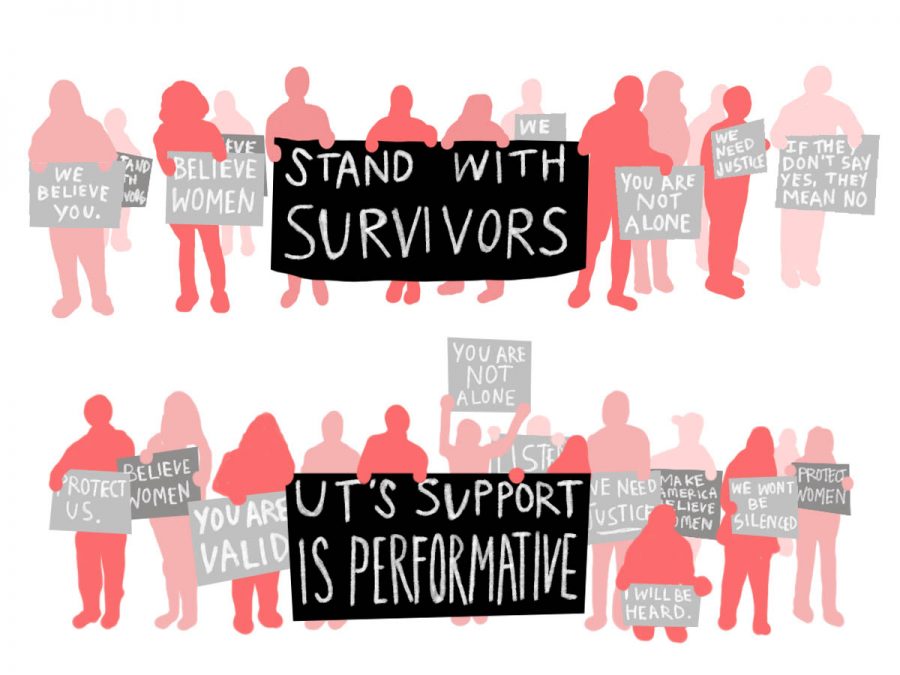Survivors of sexual assault are vulnerable to emotional distress, especially immediately after the incident. Providing students with access to resources and helping them understand what steps to take next are essential to the recovery process.
According to Marla Craig, associate director for Clinical Services at the Counseling and Mental Health Center, there are five crisis response counselors who assess students’ needs and direct them to the appropriate resource. CMHC has numerous resources for students, including frequent short-term counseling, but sexual assault survivors may need help beyond counseling. They may also need help understanding how a Title IX investigation works.
Fatima Wahid, environmental engineering and sustainability studies junior and sexual assault survivor, said the Title IX process can be difficult to navigate and stressful for anyone involved.
If a survivor is in a Title IX investigation, they can have an adviser attend all meetings with them. Advisers can be a close friend, a family member, a professor or anyone of the survivor’s choice. Most advisers are not trained to understand the complicated process, and there are a very limited number of individuals on campus who understand the Title IX process and are trained to work with survivors.
UT needs trained individuals who can serve as educated advisers to support survivors during Title IX investigations.
According to the CMHC staff directory, there are only five counselors specifically trained to work with survivors and very few other counselors able to assist them. The proportion of trained counselors who could also advise is small in relation to the 18 percent of UT students who are victims of sexual assault.
For Wahid, the most useful resources UT provided her were not through Title IX or CMHC. Wahid said her conversations with confidential advocate Bree Van Ness were most beneficial. Confidential advocates such as Van Ness are trained to work with survivors and provide them with the resources, education and support they need to handle their trauma. Van Ness has been an adviser to several students going through Title IX investigations. We need more Brees at the University, Wahid said.
“Overall, it just gives the energy that sexual assaults aren’t that deserving of help or aren’t that important,” said Alyssa, a government sophomore and sexual assault survivor. “There’s a key lack of support offered to sexual assault survivors that should exist within the University and especially within CMHC.”
UT and CMHC are not providing vulnerable students with the appropriate resources to help them recover from their trauma. UT needs to provide more trained individuals, such as the confidential advocates, for students going through the Title IX process and recovery. They are qualified to serve as both counselors and advisers for survivors who may be considering opening a formal Title IX investigation. The University of California, Berkeley already has a similar program in place to provide survivors with confidential support and navigate a Title IX or legal process if they choose to pursue it.
While the University works hard to give students support, it needs to do a better job of offering them the right type of support. When there are so few properly trained individuals, an already difficult situation becomes worse for those seeking guidance.
Dighe is a Plan II and neuroscience sophomore from Houston.


















